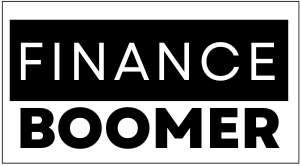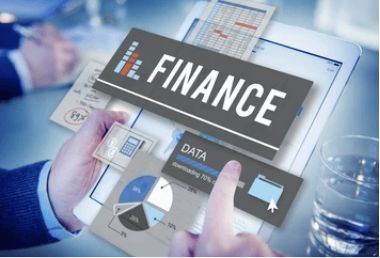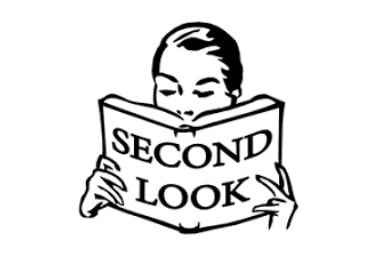Learning About Finance: A Simple Guide
In this blog post we provided you a highly researched information on, Learning About Finance: A Simple Guide.
You’d like to learn more about finance, but where do you even begin? Fear not—a plethora of knowledge is at your disposal, and getting started couldn’t be simpler. Anyone who wants to learn can access the required materials, which range from an advanced stocks analysis course to a primer on personal finances by exploring different categories of our website.
History of Finance
Before we dive deep into the study of finance, it is important that we take a brief look at the history of finance.
According to wikipedia and investopedia, “The Term Finance, as a study of theory and practice distinct from the field of economics, arose in the 1940s and 1950s with the works of Harry Markowitz, William F. Sharpe, Fischer Black, and Myron Scholes, to name just a few. Particular realms of finance—such as banking, lending, and investing, of course, money itself—have been around since the dawn of civilization in some form or another.
The financial transactions of the early Sumerians were formalized in the Babylonian Code of Hammurabi (circa 1800 BCE). This set of rules regulated ownership or rental of land, employment of agricultural labor, and credit.
Yes, there were loans back then, and yes, interest was charged on them—rates varied depending on whether you were borrowing grain or silver.
By 1200 BCE, cowrie shells were used as a form of money in China. Coined money was introduced in the first millennium BCE. King Croesus of Lydia (now Turkey) was one of the first to strike and circulate gold coins around 564 BCE—hence the expression, “rich as Croesus.”
In ancient Rome, coins were stored in the basement of temples as priests or temple workers were considered the most honest, devout, and safest to safeguard assets. Temples also loaned money, acting as financial centers of major cities.”
Why learning about finance is important
By deep study of finance, you will develop critical thinking and analytical abilities, giving you the skills to effectively identify and solve complex financial challenges. These skills are highly transferable and valuable in many other areas of life as well.
It is also important to note, that studying finance doesn’t limit you to a specific industry or sector. It does offer a broad range of applications across various industries. This makes one’s skillset adaptable and valuable in a wide range of professional settings. Whether you are interested in banking, insurance, investment or starting your own business, a finance degree can provide you with a solid foundation for success.
Another good reason to learn about finance is that finance jobs are well paid and in-demand.
In today’s economic landscape, the demand for professionals with financial expertise is high. These positions cover a wide range of roles, sectors and industries.
Companies across various industries recognize the importance of effective financial management, making finance professionals indispensable. This gives graduates and financial experts the opportunity for excellent growth and job security.
It is a win win situation for anyone who want to build a carrier in finance or advance their learning to stay well informed on everything finance.
Learning About Finance For Beginners
Learning about finance as a beginner should start with the basics of earning, saving, spending, investing, and insuring your assets.
There’s a literacy problem in most countries of the world, especially third world countries, and it goes beyond reading and writing.
The problem is financial literacy, or how to make smart decisions with money, and many Americans and most people in first/third world countries are lacking basic knowledge in this important area.
According to the 2023 TIAA Institute-GFLEC Personal Finance Index, U.S. adults correctly answered only 48% of the 28 basic money questions in an annual financial literacy survey.
Although, the share of respondents who cannot correctly answer even seven of the questions has increased to one in four.
This report found that people with a low level of financial literacy are more than four times as likely to have difficulty making ends meet in a typical month.
They are also nearly three times as likely to be constrained by debt; three times more likely to be financially fragile; and more than four times as likely to lack emergency savings sufficient to cover one month of living expenses.
In addition, employed adults with very low financial literacy were more than four times as likely to stop saving for retirement in 2022 because of inflation’s impact on their finances.
It’s no wonder so many people’s financial foundations are rocky. Most haven’t had the benefit of learning about personal finance in school or at home. They’re on their own when it comes to lessons on debt management, investing, and planning for the future.
Learning about finance online on credible website like Finance Boomer is also a great start for beginners.
Next Gen Personal Finance, a nonprofit that advocates for financial literacy in schools, said that momentum is growing each year for states to guarantee a standalone personal finance course for all high schoolers.
The group said 22 states currently require some form of personal finance education, up from six states in 2019.
Fortunately, you can take matters into your own hands. The basics of personal finance aren’t all that complicated. It’s about taking stock of what you have and where you want to go — and seeking help when you need it.
If you can pay attention to these areas of your financial life, you’re off to a great start.
Watch, Hear, or Learn About Financial Subjects
- Go to YouTube to begin your financial education. The well-known video-sharing website offers information on almost any financial subject you’d like to learn more about, from the advantages and disadvantages of buy now, pay later (BNPL) credit programs to money-saving tips for when you buy your first automobile.
- The best part is that you may expand your knowledge as you go and the stuff is free. But keep in mind that the advice you receive might not come from a registered financial practitioner, and that the material you read might not be specifically customized to your own financial situation and goals. Additionally, make sure to listen to the thousands of free podcasts that cover financial subjects; these can be downloaded easily and frequently assist in simplifying more complicated financial concepts.
- Many mutual fund companies and financial services firms also provide a range of free information. A visit to their websites can provide a wealth of information, ranging from general product education to economic forecasts and insights from analysts and market experts.
- You can recognize and keep up with the remarks made by your preferred economists, financial strategists, portfolio managers, and other professionals with very little work.
Dive Deeper: Explore Books and Online Resources to Boost Financial Literacy
Additionally, don’t disregard more traditional methods of increasing your financial literacy. There are literally thousands of books available on every possible financial issue through your local bookshop, the library, and several internet sellers. There is a book for every subject, ranging from Wall Street villains and financial history to hedge fund analysis and day trading techniques.
You won’t find a finer introduction to fundamental financial concepts than The Richest Man in Babylon. It’s a small book written in an easy-to-read style. It also concisely and clearly conveys the wisdom of the centuries.
After you’ve finished that, the well-known For Dummies series offers advice on anything from mutual funds to budgeting. Mutual Fund$ for Dummie$ and Managing Your Money for Dummies are two books that will assist you learn more fundamental ideas.
You may probably discover certain topics that you would like to learn more about as you keep your financial knowledge growing. Access to a plethora of knowledge that clarifies financial concepts for users is made possible by Investopedia and related websites, which frequently include real-world examples. Guides on how to begin investing are especially beneficial because they offer a thorough examination of a wide range of subjects.
Enroll in a course on finance.
You can learn more about investing and money by taking any one of the thousands of available online and in-person courses. You can enroll in online courses offered by several colleges at any time, for free or for a fee. In order to assist people in learning about anything from personal finance to trading, investing, and money management, we established the Finance Boomer to be your best and reliable guide.
Take Another Look at the Books
The Wall Street Journal Guide to Understanding Money & Investing is a wonderful place to start if you’ve covered the fundamentals and want a thorough overview at a more in-depth level.
Once you have finished that, there are many magazines available at your neighborhood library or bookstore that cover current events as well as general financial services issues.
How to Money:
Your Ultimate Visual Guide to the Basics of money is a great resource for a comprehensive review of all things money. The 256-page book, authored by best-selling author and regular TV guest Jean Chatzky, does an excellent job of explaining the fundamentals in an interesting and upbeat manner, including investing, taxes, credit, and budgeting and general finance.
Paying for College, 2023:
Everything You Need to Maximize Financial Aid and Afford College is a worthwhile read if you want to attend college this year. Kalman Chany, the guide’s author, lists numerous financial aid resources, including student loan choices and grant and scholarship programs. To help you get started, the book also provides helpful spreadsheets and sample financial aid forms.
Value Line:
Value Line is an excellent research and publishing company that offers an introduction to how you can start researching and analyzing companies when you’re ready to learn about stocks. The website is still worthwhile to check out even if you decide against doing your own stock analysis.
You obviously take your endeavor seriously if you have read this far. It’s time to commit to your objective on a daily basis.
Wall Street Journal:
A Wall Street Journal subscription will provide you with a daily summary of the problems affecting international business operations. There’s also an excellent Personal Finance section in the Journal.
Barron’s
Another well-known magazine that many individuals in the financial services sector read is Barron’s. Numerous additional excellent journals covering different facets of the financial services industry exist. Read the one that appeals to you the most.
Speak with Experts in Financial Services
It’s time to consult the professionals once you have a firm grasp of the numerous facets of the financial services industry. Experts in financial services earn a job by sharing their knowledge, and they can advise you on anything from student loan management to selecting a good mortgage for your first home.
Seminars address some of these subjects, one-on-one consultations cover others. It’s even possible to learn a few things from casual conversations. Consult with experts, including bankers, lawyers, accountants, and financial consultants. When you are just getting started, they will often be pleased to share their general knowledge with you, especially if you have a strong desire to learn more.
Where Is the Finest Website to Begin Studying Finance?
Enter a relevant financial phrase into YouTube to begin your internet search. The site helps you expand your knowledge by offering content on almost any subject and suggesting articles based on your recent searches. Books and podcasts about finance are also excellent resources for beginners.
Which Financial Subjects Should I Study?
Learn about the areas of finance that you are interested in first. For instance, if equities pique your interest, think about finding out more about how to create a well-balanced portfolio. If you’re considering a profession in finance, consider researching certain fields, like investment banking or financial planning, in which you would like to concentrate.
Conclusion
Although learning about finance may initially seem daunting, don’t worry—if you look in the appropriate areas, you may find a wealth of excellent information. Online resources offer a wealth of information on almost any financial issue, making them an excellent place to start your financial education journey. You can expedite your learning process and simplify more complex financial concepts by reading books and listening to podcasts on particular areas of finance that interest you. Additionally, there are a ton of paid and free courses available online that cover all aspects of investing and finance. It’s usually preferable to speak with an expert who can provide more individualized financial guidance, taking into account your unique situation when making recommendations.
Learning about finance does not happen in a day, but our website contains a lot more ton of highly researched quality information in this discipline, so you can explore our different categories to learn different subjects and equip yourself.
We hope that you learnt a lot about finance on this blog post, as equally we hope that you drop us a comment to encourage our work after reading.
FAQs
What does finance mean to you?
The management of money, which encompasses tasks like forecasting, budgeting, borrowing, lending, and investing, is known as finance.
What is the meaning of finance?
The discipline and study of money, currencies, and capital assets is known as finance. Economics is the study of the production, distribution, and consumption of products and services. It is connected to but separate from economics.
What is an introduction to finance?
In the system of finance, money is exchanged between investors, lenders, and borrowers. It functions on a number of levels, including national, international, and company levels. As a result, it involves several intricacies pertaining to institutions, markets, etc.
What are the basics of finance?
The basics of finance starts with understanding the definition which is the efficient management of money in regards to activities such as investing, borrowing, lending, budgeting, saving, and forecasting. It is also important to note that there are three main types of finance: (1) personal, (2) corporate, and (3) public/government finances.
How to learn about investing and finance?
The best way to learn about finance is to talk to professionals, such as financial advisors, bankers, accountants, and attorneys. They are often happy to share their general knowledge with those just starting out, especially if you show a keen interest in learning more.
Reading finance books and online highly researched materials/articles like ours is equally a great way to learn about finance and investing.
What is the best course to learn finance?
According Investopedia an online top-rated finance website, EdX’s Finances for Everyone is the best course to learn about finance.
Why? EdX has high quality world-class resource materials that is 100% free to access.
Can I study accounting and finance online?
Yes! Oxford Home Study Centre offers the most flexible free online accounting courses on the web. It is suitable for newcomers and experienced candidates from all backgrounds, their endorsed accountancy and finance courses are open for enrolment and you can access it via this link
What is the easiest course in finance?
The following are the easiest short-term certification courses in finance.
And they include, financial modeling, certified financial planner, and certified financial analyst.
What are the 4 areas of finance?
Generally, finance is the management of money which includes investing, borrowing, lending, budgeting, saving and forecasting.
And the following are four main areas of finance: banks, institutions, public accounting and corporate.
How do you gain financial knowledge?
There are basically six ways to improve or gain financial knowledge or financial literacy and they include the following;
1. Talk to a financial professional.
2. Read personal and Corporate finance books.
3. Keep a budget.
4. Listen to financial podcasts.
5. Use social media.
6. Subscribe to financial newsletters. For free financial news in your inbox, you subscribe to financial newsletters from trusted sources.
This is presented according to their order of importance.
What is the toughest course in finance?
According to verified online reports and sources, The Chartered Financial Analyst (CFA) program is widely regarded as one of the toughest courses in finance. It is said to require an immense amount of dedication to successfully complete and the pass rate is notoriously low, making it a highly sought-after certification in the finance world.
Is accounting easier than finance?
Survey and data driven research revealed that, people consider accounting majors to be more difficult to study and pass than finance majors. And there are not many different reasons for this. The content of accounting majors is, on average, much more technical than for finance majors, and this can make it more difficult, survey and research reveals.
What is the difference between finance and accounting?
Is banking and finance the same?
It is important to note that the primary difference between banking and finance is that banking is a specific subset of finance. While banking is focused on managing deposits, loans, and other financial products and services provided by banks, finance on the other hand encompasses a broader range of activities related to managing money and investments.
Is finance harder than economics?
Yes! Because finance degree heavily depends on financial analysis and modeling, students may find the material more difficult if they struggle with mathematical concepts. Although, students who are seeking an economics degree might have difficulty understanding abstract ideas like economic theory and policy analysis.
Based on the above reason, finance is harder than economics, but not generally.
How hard is math in finance?
The general answer to this question is “Not That Hard”
However, if you are a type that find calculations and vocabularies quite difficult, math in finance may be a herculean task for you.
It is critical to note that, Finance is a mathematical discipline, so if you aren’t as comfortable with math as with other ways of thinking, you may find it more challenging. One thing that’s for sure is the high amount of calculations and math you will need to study in finance. Also, finance makes use of a vast, highly specific vocabulary. so if you aren’t good with vocabularies, that may equally be a challenge.
What kind of math is used in finance?
The type of math used in finance is an applied mathematics known as Financial Mathematics.
Financial Mathematics is the field of applied mathematics that involves defining problems in finance and providing solutions using methods that draw from probability, statistics, differential equations, optimization, numerical methods, and data science.
What kind of math is in finance?
Generally, the type of math that is in finance is an applied mathematics known as a Financial Mathematics.
And here are some of the main math-related skills that the financial industry requires: mental arithmetic (“fast math”), algebra, trigonometry, statistics, calculus and probability.
How is math applied in finance?
Math is applied in finance under risk management.
The exact application for financial mathematics is risk management. By using this strategy as a financial expert, one can help professionals identify and manage financial risks. It is also important to note that, financial analysts often use mathematics to analyze market data, find patterns in data and predict risks.
Is trigonometry used in finance?
Does finance use calculus?
Yes! Finance uses calculus. The aspect of finance where calculus is used is in Mortgage Financing.
It is in Mortgage financing where calculus is used to calculate monthly mortgage payments, determine amortization schedules, and assess the financial feasibility of real estate investments.
This is not all there is to learn about Finance but we have provided a great and superb start on finance as a learning discipline and carrier path.
There dime a dozen of other useful Finance materials on different categories on our website, do well to explore them and equip yourself more.
We hope that you had a great learning experience reading this particular finance topic, please leave us a comment below to encourage our writers and editors.









